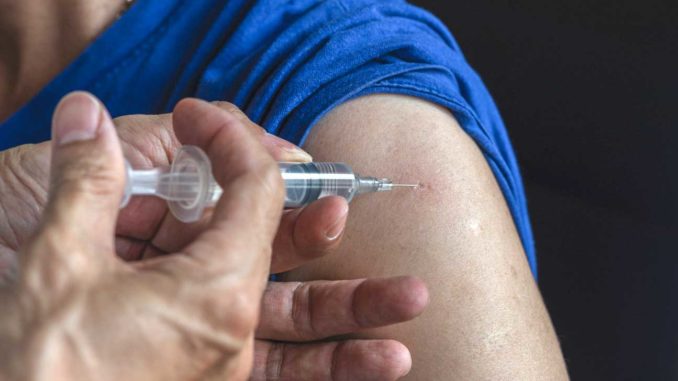
A new UK study shows that neuroinflammation, a side-effect of many common vaccines, is the root cause of autism and other neuro and psychiatric disorders.
Researchers at the University of Birmingham and University of Amsterdam found that the typhoid vaccination elicited a “transient low-grade inflammatory response” in patients and the inflammation resulted in impairment of the persons brain.
They concluded that inflammation is likely a major factor in social-cognitive deficits in psychopathologies that exhibit enhanced inflammation, such as major depression and autism.
Science Direct reports: The ability to adequately interpret the mental state of another person is key to complex human social interaction. Recent evidence suggests that this ability, considered a hallmark of ‘theory of mind’ (ToM), becomes impaired by inflammation.
However, extant supportive empirical evidence is based on experiments that induce not only inflammation but also induce discomfort and sickness, factors that could also account for temporary social impairment.
Hence, an experimental inflammation manipulation was applied that avoided this confound, isolating effects of inflammation and social interaction.
Forty healthy male participants (mean age = 25, SD = 5 years) participated in this double-blind placebo-controlled crossover trial. Inflammation was induced using Salmonella Typhi vaccination (0.025 mg; Typhim Vi, Sanofi Pasteur, UK); saline-injection was used as a control.
About 6h30m after injection in each condition, participants completed the Reading the Mind in the Eyes Test (RMET), a validated test for assessing how well the mental states of others can be inferred through observation of the eyes region of the face.
Vaccination induced systemic inflammation, elevating IL-6 by +419% (p < .001), without fever, sickness symptoms (e.g., nausea, light-headedness), or mood changes (all p’s > .21). Importantly, compared to placebo, vaccination significantly reduced RMET accuracy (p < .05). RMET stimuli selected on valence (positive, negative, neutral) provided no evidence of a selective impact of treatment.
By utilizing an inflammation-induction procedure that avoided concurrent sicknesses or symptoms in a double-blinded design, the present study provides further support for the hypothesis that immune activation impairs ToM.
Such impairment may provide a mechanistic link explaining social-cognitive deficits in psychopathologies that exhibit low-grade inflammation, such as major depression.
Source Article from https://yournewswire.com/study-neuroinflammation-vaccines-autism/
Related posts:
Views: 0
 RSS Feed
RSS Feed

















 May 16th, 2018
May 16th, 2018  Awake Goy
Awake Goy 
 Posted in
Posted in  Tags:
Tags: 
















